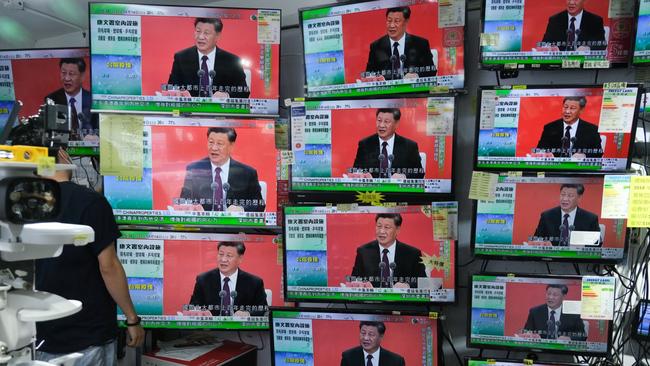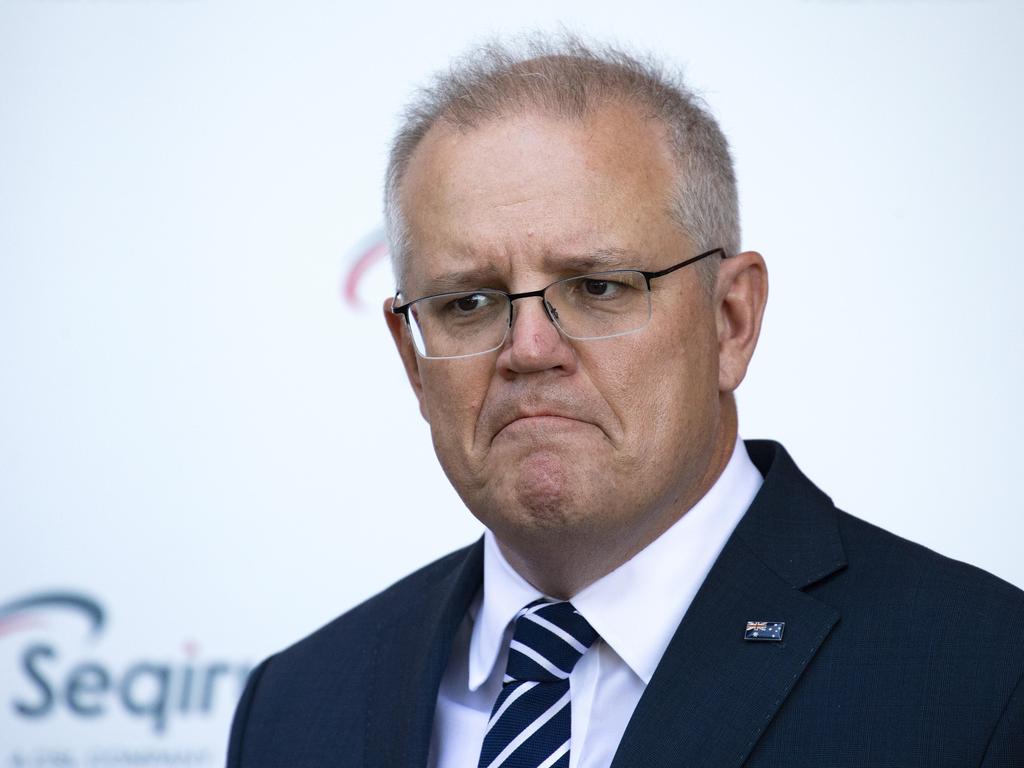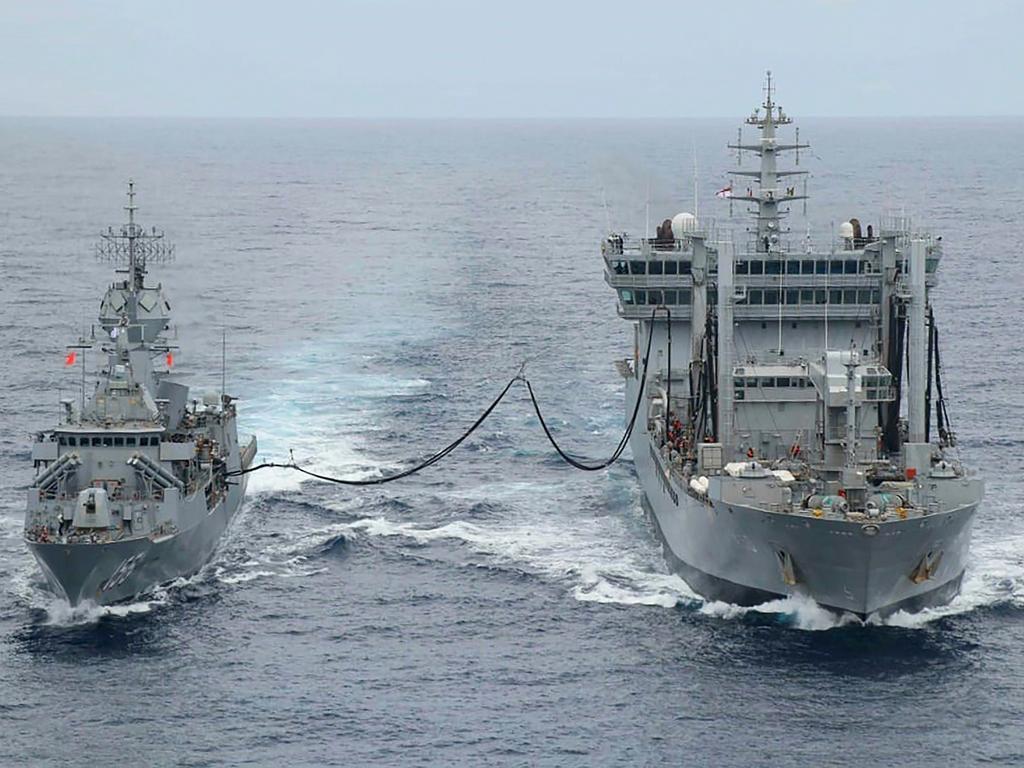A little trouble with big China
There is a lot to be worried about with the Chinese government, but sometimes masterful inactivity is the least worst option.

This has been a bracing, clarifying week in Australia’s relations with China. The clear lesson is that the differences between Canberra and Beijing concern matters of substance, not style, and they are matters on which no Australian government could or would reverse itself.
Cast your mind back a year. I was spending a few months as a visiting fellow at a British university and I was frequently invited to functions with titles like: What Britain can learn from Australia on China.
British interlocutors were astonished Canberra had been able to protect its 5G network, legislate against foreign interference in our politics and determine which Chinese investments were in our national interests, without suffering harm to our trade with China.
Although I enjoyed this rare moment of British humility towards Australian diplomacy, I always thought it was only a matter of time before Beijing started applying political and trade measures against us.
This prediction took no great insight. It is a strong pattern of Beijing’s international behaviour. It gets annoyed with nations. It punishes them. Finally it gets bored and moves on to something else. Often Beijing just gets annoyed with someone else, and doesn’t want to have too many disputes running at once, so it moves its anger to the next victim.
If we go back four years or so, it was Japan that was in the doghouse with Beijing, while we were flourishing.
That is not to say that nothing we do has any effect, that our own management and mismanagement don’t influence things, but if you’re looking for the key to Beijing’s international behaviour, you find it mainly in domestic Chinese dynamics, not in the mastery or otherwise of tone, or the forms of diplomacy, among international partners.
This week had big structural developments. First came the signing of the Regional Economic Comprehensive Partnership involving 15 nations. As we already have comprehensive free-trade agreements with all 14 of the others, RCEP holds almost no advantages for us.
For a time it was seen as a diplomatic coup for Beijing because the US is not involved. To some extent RCEP was a Beijing play against Washington. But the real-world economic consequences of RCEP are very small. Some of its boosters took to arguing that because it provides for somewhat better co-ordination of trade regulations among Southeast Asian nations, it’s actually a Southeast Asian play against China.
Well, we’ll see. You can project anything you like on RCEP.
One odd suggestion was that RCEP would help soothe Australia-China tensions by providing a neutral venue and framework for leaders of the two nations to meet. While well-intentioned, this is a frankly ludicrous proposition and shows how thin and content-free so many suggestions for improving Beijing-Canberra relations really are.
The region positively groans with meetings. You would exhaust all the letters a speedy computer can produce in a long day’s work just by listing the acronyms of Asia’s endless consultative bodies. COVID-19 prevents most physical meetings for now, but when they resume, running into a Chinese official in a corridor won’t reverse a settled Beijing decision to keep us in the deep freeze.
Chinese government ministers have made it abundantly clear they won’t take formal meetings or even phone calls from their Australian counterparts, notwithstanding that Beijing and Canberra have a Comprehensive Strategic Partnership.
More significant was Scott Morrison’s midweek visit to Tokyo to see Japan’s new Prime Minister, Yoshihide Suga. The visit went through the motions on climate change and did some good commercial stuff, but the substance was the Reciprocal Access Agreement, which makes it much easier for Australian and Japanese military forces to work together and, in extremis, to fight together.
Japan is the world’s third largest economy and, despite its war-renouncing constitution, is a formidable military power. The deep friendship and solidarity between Japan and Australia has been a motor of regional progress for decades. Japan and Australia are also two of the strongest nations in resisting intimidation from Beijing.
In Tokyo, Morrison said Japan and Australia welcomed China’s growth, and that Australia, unlike some nations, did not see itself in strategic competition with China.
Those fine words certainly buttered no parsnips.
The Chinese Foreign Ministry all week kept up an almost daily denunciation of Australia at Beijing’s foreign media briefings. Chinese spokesmen said Australia and Japan would pay a price for their agreement. Beijing’s denunciation of Australia was more widespread and extravagant than its criticisms of Tokyo. This seems strange, as Japan is a much bigger, more powerful nation than Australia.
The explanation is simple enough. For whatever reason, Beijing is not brawling with Tokyo at the moment. It is punishing Canberra. That’s the only interpretive grid that counts.
Geoff Raby, a former ambassador to China and a constant critic of alleged Australian ham-fistedness in managing the Beijing relationship, was asked the $64m question at the National Press Club. If he had the power, what would he actually do to improve the relationship? Talk about a damp squib. Raby did not suggest changing any important policy. Rather his deep insights was that the Foreign Minister should drop some positive remark about China into a speech. Our diplomats could use this as a calling card.
As if on cue, Josh Frydenberg told The Australian’s Strategic Forum this week that Canberra deeply valued the China relationship. Among paragraphs of emollient Frydenberg charm, the Treasurer declared: “We are committed to maintaining a strong and productive relationship, we stand ready to engage with the Chinese government in respectful, mutually beneficial dialogue.”
But Frydenberg got no better reception than the Prime Minister. The Chinese embassy fumed that the relationship had “serious difficulties” and these were Australia’s fault. China was angry, we were threateningly told. If you make China the enemy, then China will be the enemy, which seemed a strange response to Morrison and Frydenberg being nice.
The point is this: the problems between Beijing and Canberra have nothing to do with diplomatic style.
As if to emphasise this, the Chinese embassy gave a one-page document to a Channel 9 reporter listing Beijing’s grievances with Canberra. Although the paper has no official status, no intrinsic importance, it is in its way nonetheless a wonderfully clarifying document. It surely determines once and for all any argument about what the source of the problem is.
The paper lists 14 complaints Beijing has about Australia:
1) Chinese foreign investment proposals rejected on national security grounds.
2) Banning Huawei and ZTE from the 5G network.
3) Foreign interference legislation.
4) Stigmatising Chinese-Australian interactions, especially university interactions.
5) Calling for an independent inquiry into the origins of COVID-19.
6) Australian comment on Xinjiang, Hong Kong and Taiwan.
7) Australia’s statement to the UN on the South China Sea.
8) Spreading disinformation about China’s efforts to contain COVID-19.
9) Legislation to scrutinise Beijing’s agreements with state governments, especially Victoria’s agreement on the Belt and Road Initiative.
10) Providing funding to an anti-China think tank (though unnamed, this is presumably the Australian Strategic Policy Institute).
11) Recent raids on Chinese journalists’ homes in Sydney.
12) Allegations that China engages in cyber-attacks.
13) “Outrageous” condemnations of the Communist Party by MPs, as well as racist attacks against Chinese and Asian people.
14) Unfriendly or antagonistic reports on China by Australian media.
So looking through the list, what could any Australian government possibly do about any of them?
It is untrue that there are routine racist attacks on Asian people in Australia but it is critically important that any political criticism of the Chinese government not be made so clumsily as to look like a criticism of Chinese ethnicity. Some anti-China stuff is overdone in Australia. I find Clive Hamilton’s books overrated and their judgments unreliable. He casts doubt on people I know to be tough-minded critics of China.
There is a lot to be worried about with the Chinese government, but there have been traces of hysteria in parts of our debate.
Raids on Chinese journalists are unlikely to be repeated.
Apart from these things, there is nothing on the list any Australian government should change. Should an Australian government prevent the media from criticising China? Should Canberra never voice a concern for human rights in Xinjiang or Hong Kong? Should we abrogate concern over Beijing’s behaviour in the South China Sea, behaviour definitively ruled illegal by the Permanent Court of Arbitration?
The things that upset Beijing the most are foreign investment decisions, foreign interference legislation and banning Huawei from 5G. This is because other nations look closely at what Australia has done. Canberra has been at pains to say it is not urging anyone else to follow our example. These were all completely justified decisions taken in Australia’s national interests after exhaustive agency advice.
Victoria’s Dan Andrews earns special opprobrium for making a bad situation much worse. His foolish and so far worthless BRI agreement cut across normal federal government authority, yielded nothing for Victoria, and necessitated Canberra foreshadowing legislation that Beijing now complains about.
Have we made mistakes? Certainly. The World Health Organisation inquiry into the origins of COVID-19 looks pretty useless. Unilaterally calling for this inquiry achieved nothing for Australia and upset Beijing. That’s not smart diplomacy.
And we still have foreign and defence ministers speak too seldom on China so that the government has no one to regularly explain the China relationship except the PM himself.
Anthony Albanese’s opposition sometimes says we need an integrated national China strategy. How would that solve the Huawei problem? Business leaders say keep economics and security apart. How does that address the need to sometimes say no to a Chinese takeover of critical infrastructure?
Some problems can’t be solved, only managed. Australian leaders should remain as positive as possible, look for opportunities for dialogue, avoid gratuitous slanging matches, but not look desperate and at the same time reverse no serious national interest policy. So far, Morrison has done this very well.
And of course we should diversify our economy.
But on the diplomatic front, masterful inactivity is sometimes the least worst option. Our best bet is just grin and bear it. Eventually Beijing will move on to something or someone else.






What a difference a year makes!